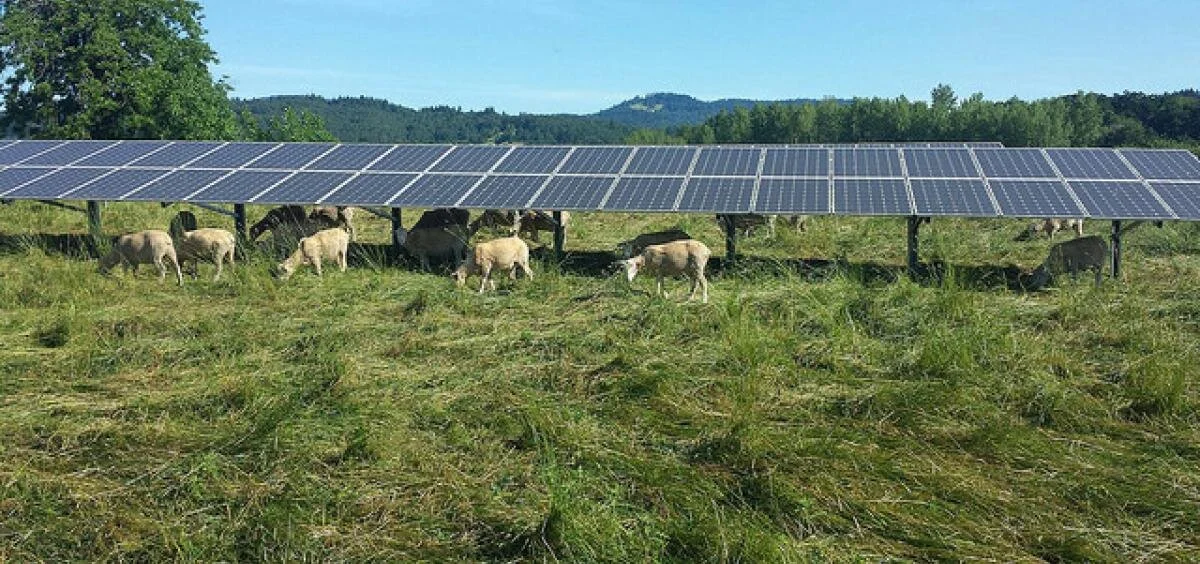The City of Woodburn has been awarded the first Energy Efficiency & Conservation Block Grant from the Oregon Department of Energy’s new federally funded grant program.
Read MoreThe Oregon Department of Energy helps individuals, businesses, nonprofits, Tribes, and other organizations in Oregon complete energy-saving, renewable energy, and energy resilience projects through several programs. These programs offer incentives, rebates, energy audits, and more to provide different options and resources for all kinds of energy goals. Check out our programs by the numbers from 2023!
Read MoreStudents will be able to enjoy a new kind of ride to school after Bend-LaPine Schools acquired its first all-electric school bus this spring. The electric school bus was also the first bus supported, in part, with Public Purpose Charge funds. The Public Purpose Charge program, administered by the Oregon Department of Energy, is funded through the state’s two largest electric utilities, Portland General Electric and Pacific Power.
Read MoreGet caught up on ODOE program highlights with the new 2022 By the Numbers sheet!
Read MoreOregon has once again earned high marks for energy efficiency efforts, according to the American Council for an Energy-Efficient Economy. ACEEE’s 2022 State Energy Scorecard ranks Oregon tied at No. 11.
Read MoreOn the third episode of a Oregon Energy Timeline Conversations, we sit down with the Energy Trust of Oregon's founding executive director, Margie Harris. Learn about the early days of ETO and the passionate energy work lead by Margie in this intimate and candid interview!
Read MoreEach year, the American Council for an Energy Efficient Economy releases its State Energy Efficiency Scorecard, which measures how states advanced their energy efficiency policies and programs over the last year. For 2021, in light of the COVID-19 pandemic, ACEEE decided to forgo its usual scorecard, but still issued a progress report highlighting the good work states have done over the last year, including Oregon.
Read MoreIn this month’s newsletter, a new cost analysis tool and guidebook for electric school buses, public engagement opportunities for new incentive programs, a fresh new look for the Go Electric Oregon website, and more.
Read MoreThe Oregon Department of Energy has launched a new cost analysis tool and guidebook for Oregon school districts interested in adding zero emission buses to their fleets.
Read MoreWe’re kicking off 2022 by looking back at some highlights from the past year. Thanks for being part of our work — cheers to a new year working together toward a safe, equitable, clean, and sustainable energy future!
Read MoreSummer 2021 presented a new transportation fuel challenge: jet fuel delivery. Deanna Henry, ODOE’s Emergency Preparedness Manager, responded over the summer to requests for additional jet fuel deliveries to small airports in southern and northeast Oregon to support firefighting missions.
Read MoreTen years after breaking ground, the Baldock Solar Highway is still delivering renewable energy to Oregonians and weary travelers.
Read MoreThis summer, ODOE staff had the pleasure of working with a handful of bright up-and-coming professionals through our internship program. Get to know a few them and what they’ve been up to!
Read MoreMany students, educators, and staff are returning to Oregon classrooms this month, following a challenging year like no other. When trading Zoom classes for in-person desks once again, students and educators in some districts are also returning to more comfortable classrooms thanks to energy improvement projects funded by the Public Purpose Charge Schools Program.
Read MoreThe U.S. Department of Energy recently acknowledged the City of Portland’s Bureau of Planning and Sustainability for its efforts in promoting energy efficiency through Home Energy Score programs.
Read MoreThe Yellowhawk Tribal Health Center, located on the Confederated Tribes of the Umatilla Indian Reservation, is at the forefront of sustainability in Oregon. The health center is enrolled in Energy Trust of Oregon’s Path to Net Zero. Not only is it the first emerging net zero energy health care building in Oregon, but it is the first tribal building to make this commitment as well.
Read MoreOregon Department of Energy Director Janine Benner joined (virtually) Ashland Food Co-op, True South Solar, the City of Ashland, and other partners to celebrate the ribbon-cutting of Ashland Food Co-op’s new virtual net-metered solar installation. ODOE was proud to support the project with a $100,000 Renewable Energy Development Grant.
Read MoreIn this packed episode, we’ll learn about biomass in Oregon and dive into the electricity potential of the wood-to-energy technology called torrefaction. This is a double feature you won’t want to miss!
Read MoreIndividual ODOE team members have been elected to serve in leadership positions for the Hanford Advisory Board and Hanford Natural Resources Trustee Council.
Read MoreIn our 2020 Biennial Energy Report, we highlighted some of the cool stories happening around energy in Oregon. One of our stories was about Oregon State University’s research in combining agriculture and solar photovoltaics (agrivoltaics) for the mutual benefit of the environment and farms. Read on.
Read More


















